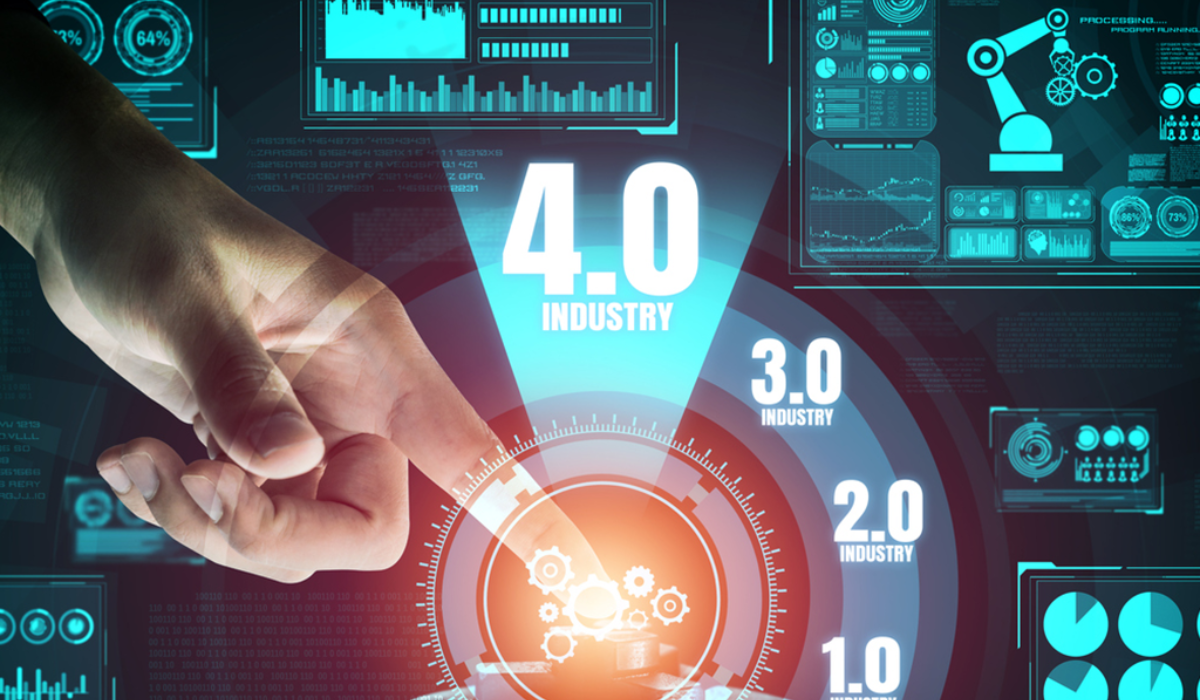Fourth Industrial Revolution: How It Changed the Manufacturing Landscape
The Fourth Industrial Revolution, or Industry 4.0, has arrived to revolutionize the manufacturing sector by integrating advanced technologies that are transforming the way companies design, manufacture, and distribute their products. With the emergence of the Internet of Things (IoT), Artificial Intelligence (AI), and Big Data, the Fourth Industrial Revolution is driving a new era of digital twins, smart factories, and automated processes. But what exactly is Industry 4.0, and how has it changed the manufacturing landscape?
What is the Fourth Industrial Revolution?
The Fourth Industrial Revolution refers to the integration of intelligent digital technologies into industrial processes. How does it happen? We explain it in this video:
This revolution not only optimizes production but also facilitates data-driven decision-making in real time. Here are some of its key features:
1. Integrated Technologies: Industry 4.0 connects technologies such as IoT, AI, Big Data, and robotics to create a smarter and more efficient production environment.
2. Smart Factories: Factories of the future are capable of self-optimization, with automated processes that quickly respond to market demands.
3. Enhanced Productivity: The combination of technology and data optimizes efficiency, reducing costs and improving product quality.
4. Smart Decisions: Real-time data collection and analysis enable companies to make more informed and agile decisions.
5. Human-Machine Collaboration: Industry 4.0 promotes collaboration between workers and machines, increasing flexibility and customization in production.
How Is It Changing Manufacturing?
The arrival of Industry 4.0 has redefined the manufacturing landscape, causing significant changes in various aspects:
1. Technological Advances: With automation, AI, and IoT, factories operate more efficiently and flexibly, collecting and analyzing real-time data to optimize production processes.
2. Reconfiguration of Value Chains: Globalization and geopolitical tensions have led to the reconfiguration of supply chains, now focusing on resilience and diversification of sources.
3. Shift in Consumer Demand: Consumers are demanding personalized and sustainable products. In response, companies are adopting more flexible and eco-friendly production processes.
4. Shortage of Skilled Labor: Automation has created a demand for specialized workers, presenting a challenge for the industry.
5. Focus on Sustainability: Sustainability has become imperative, with an emphasis on reducing carbon footprints and adopting more eco-friendly practices.
Industries Most Benefited by Industry 4.0
Industry 4.0 has impacted multiple industrial sectors, enhancing efficiency and allowing for greater product customization. The sectors that benefit the most include:
1. Automotive: With collaborative robotics and computer vision, the automotive sector optimizes its production processes and improves quality.
2. Agrifood: Technologies such as drones and computer vision enable more precise and efficient control in agricultural production.
3. General Manufacturing: The ability to analyze real-time data optimizes operations, reduces costs, and improves quality.
4. Healthcare: The manufacturing of medical devices and patient data management are transformed by advanced technologies.
5. Logistics: IoT optimizes inventory management and routing, improving supply chain efficiency.
6. Electronics: Simulation and virtual testing reduce development time and improve the quality of electronic devices.
Impact of Industry 4.0 on Product Quality and Customization
Industry 4.0 has enabled companies to improve the quality and customization of their products, resulting in a competitive advantage in the market.
1. Improvement in Quality: The integration of advanced technologies such as AI and IoT allows for real-time monitoring and control of production processes, reducing errors and enhancing final quality.
2. Increased Customization: Production lines can now be quickly adjusted to offer personalized products at scale, aligning with the expectations of the modern consumer.
The Fourth Industrial Revolution has transformed manufacturing by integrating advanced technologies that enhance efficiency, quality, and product customization. As more sectors adopt these innovations, new opportunities and business models emerge. In this new landscape, companies that adopt these technologies will not only meet market demands but exceed consumer expectations, ensuring their competitiveness in the future.
JOIN THE NEW REALITY!


